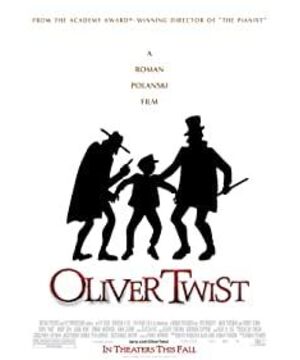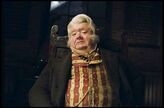A few years after the promulgation of the "New Poor Law" in 1834, Dickens's "Oliver Twist" came out. By describing the tragic life of the orphan Oliver Twist, it severely criticized the former and strongly supported the society at that time. Range objection. The social context depicted in Polanski's films has many connections to the emergence of modern social work.
Modern social work has its origins in the growth of the bourgeoisie and its accompanying industrial revolution. At the end of the Tudor Dynasty, the enclosure movement forced a large number of peasants to leave the land, and the industry could not absorb too many people, resulting in a large number of unemployed vagabonds; the price revolution led to inflation, and the wages of workers seemed to increase and decrease; The promulgation of the Act was a signal for the domestic religious reform in England, which established the authority of the secular king to break away from the Holy See, dissolved a large number of monasteries, and confiscated religious property, and the church had always been the main force in helping the poor. The polarization between the rich and the poor leads to sharp social conflicts and economic turmoil. The Poor Law of Elizabeth in 1601 brought welfare into the public affairs of the secular state in the form of law, which became the origin of the later social welfare law in England.
Over the course of two centuries, the Poor Law has been improved many times. In the early 18th century, before the Industrial Revolution, poor taxes put enormous pressure on finances, and poverty continued to increase. The Poor Relief Act of 1722 stipulated that parishes set up workhouses and only provide relief to the poor in the workhouses, but this act has not been implemented in practice. In the late 18th century, Britain experienced the transformation of industrial structure. The flow of labor from agriculture to industry made the problem of unemployment more and more prominent, and the relationship between unemployment and poverty became more obvious. At the end of the 18th century, the Speenhamland system stipulated the minimum standard of relief needs, although it declined quickly after its promotion, and later became the origin of the minimum wage system. Since the 19th century, the industrial revolution has been in full swing, and the original Speenhamland system has made the income of the poor who are relieved is higher than that of ordinary workers who can just take care of themselves. The Poor Law is no longer applicable, so the New Poor Law was born. From Marne's point of view, the "New Poor Law" is an expedient measure to alleviate the confrontation between social classes, and its root is the socialization of production.
Historically, early social work and philanthropy have the same origin, but social work is different from philanthropy. The time corresponding to the background of the story of Oliver Twist is the period when social work changed from religion to secular, from private behavior to public service. The homology with charity is that poverty alleviation was the focus of early social work, and it was intricately linked to the idea of charity work. The task of helping the poor has traditionally been largely undertaken by the church—in fact, every religion contains the idea of helping the poor in different forms. In the novel and the film, this task is replaced by specially created workhouses by the government (the New Poor Law outlawed outdoor relief). Centralized shelter is an inevitable advance, and social work has thus become a public service, a sector of the modern state. However, the conditions of the workhouse were poor. While the officials were enjoying a large meal, the children could only drink a little porridge at each meal. They are forced to work and can be sold as apprentices at any time, and their lives are not guaranteed. In fact, the "New Poor Law" was strongly opposed by all sectors of society as soon as it was introduced, because the diet in the workplace was not enough to maintain the health and nutrition of workers, and the law even forced workers to relocate to workplaces separated from their families.
The poor law was implemented not out of the government's benevolence, but out of its background of mechanistic population thought and utilitarian thought. Malthusianism believes that population growth is a geometric process. Poverty arises from the country's inability to support a rapidly growing population, and the existence of poverty is the driving force for people to improve themselves and strive to get rid of poverty. Bentham's utilitarianism believes that the purpose of state intervention in poverty relief is to achieve "the greatest benefit of the greatest number". If the remuneration of the recipients exceeds those of the workers who are barely able to support themselves, it will cause a heavy burden on the finances and worsen poverty on the contrary. . In order to discourage people from making demands, conditions in the workplace will become harsher. The stigma of relief has made it a common social phenomenon that the managers of the workhouses shown in the film are bossy and rude towards children.
Dickens' romantic realism is embodied in the happy finale of Oliver Twist. Oliver, who had nothing at all, met Mr. Brownie, the noble man in his life, and even after being captured by the thief gang, he was able to miraculously escape from the devil's cave, clarify his identity, and completely change his fate. On the one hand, this aspect shows the origin of social work - the ensuing social problems have inspired the wealthy middle and upper classes to seek ways to improve the physical and mental conditions of the poor and lower classes, and the emergence of "Scientific Philanthropy" believes that charity should be " Secular, rational and empirical, not sectarian, sensual and dogmatic". On the other hand, the role of Mr. Brownie shows that social work has not been completely de-privatized in this period, but is in a transitional period, and the fate of the beneficiary depends on the personal goodness of the benefactor he/she encounters. Oliver was humiliated and lived a miserable life before he came to London, but luck brought him to meet Mr. Brownie, who, as an intellectual among the upper aristocracy, did charity in his own name - adopting and educating the orphan Oliver.
But it is conceivable that in the real British society, such a dramatic plot of ups and downs is basically impossible, and the story will end at the place where Oliver was recaptured and returned to the thief gang. The objective demand for the independence and improvement of social work has been very urgent. It should be pointed out that in order to achieve the purpose of doing good, social work as a public undertaking must abandon utilitarianism. The goals of social work are idealistic. Social work relies heavily on human kindness and empathy, on the moral codes of equality and fraternity enshrined in the Enlightenment. If Mr. Brownie's kindness is only personal strength, social work will promote it so that every child like Oliver can live a dignified life, which is the idealistic character of the social work cause.
Although he was taken in by a thief gang, Oliver did not agree with his conscience to get something for nothing, so Mr. Brownie also trusted him because he saw the kindness in him, and finally Oliver was rescued. The novel and the film thus convey the values that good people are rewarded, and that labor is encouraged to change fate. This is also the focus of social work - not only to ensure the basic survival of the poor, but more importantly to create employment and encourage the change of poverty through innocent labor. The concept of employment poverty alleviation originated very early. Early social worker Octavia Hill, the founder of COS in the 19th century, encouraged individuals to take responsibility for poverty alleviation in addition to social assistance. She was an outspoken critic of the Speenhamland system's approach to outdoor relief, which discouraged recipients from working, arguing that recipients were "using public funds at will". Teaching a man how to fish remains an important principle of a dynamic social welfare policy to this day.
References
[1] Liang Fafu. "Elizabeth Poor Law" has far-reaching influence [N]. Shenzhen Special Economic Zone News, 2019-06-11 (C03).
[2] She Jun. The "Public Entertainment Place" of the Poor Class?: "Oliver Twist" and the Reform of the British Workhouse System in the 19th Century [J]. Research on British and American Literature, 2019(02): 64-74.
[3] Popple, Philip R. and Leighninger, Leslie. Social Work, Social Welfare, American Society. Boston: Allyn&Bacon, 2011.
[4] Poynter, John (1998), "Malthus and his critics", Malthus Bicentenary Conference, National Library of Australia, Canberra: National Academies Forum.
[5]Spicker, Paul, British social policy 1601–1948, Robert Gordon University, Aberdeen: Centre for Public Policy and Management.
[6] Huff, Dan. "Chapter I.2 Missionaries & Volunteers". The Social Work History Station. Boise State University.
View more about Oliver Twist reviews











